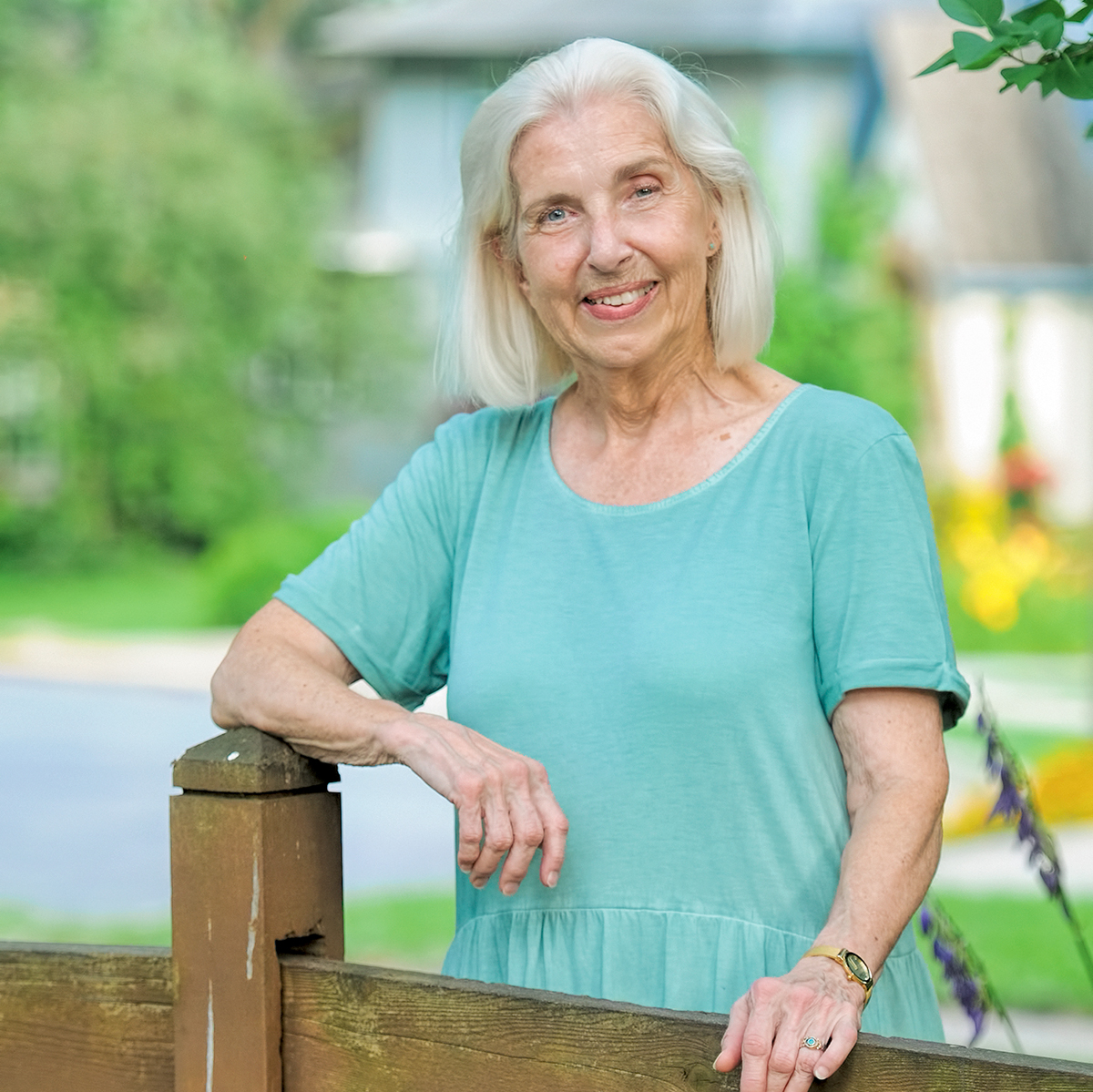Alice King Moormann, ’60, was a young mom in 1968 when she joined the League of Women Voters Minneapolis.
“The war in Vietnam was going on, and I didn’t know a lot about politics,” she remembers. “I boycotted for a time, and that led me to think it was important to learn more about our political process.” She smiles. “Well, I soon learned that the league is very process oriented.”
It is the democratic process that’s the focus of the League of Women Voters, born during the campaign for women’s suffrage nearly a century ago. Its structure is based on local leagues as the foundation for state leagues and a national league.
The league doesn’t support any candidate or political party. It does support free and fair elections and educating voters. Discussion plays a big part.
“The premise of the league really is discussion,” Moormann says. “At the time I joined, most of us were stay-at-home moms, getting out once a month to discuss what was happening in the world. You were challenged!”
Many of the women Moormann met in the league were college graduates, but most of them had majored in political science or history. She was an art educator, and her classroom skills proved valuable. She got involved in developing a discussion guide and materials that have continued to evolve and are used to this day.
“Discussion is not just listening,” she stresses. “It involves things like, how do you frame a question? We need to make sure we really have discussions.”
This summer Moormann was on the freeway when a Black Lives Matter protest shut it down.
“That caused me to really think,” she says. “All of us need to be tuned in to where our own biases are. How should Minneapolis be supporting racial equity right now? How are we talking about this?”
Debate, discussion, and the art of leadership
The League of Women Voters is well known for hosting the first nationally televised political debate in 1952. It continues to sponsor forums at the local level, and many members serve as election judges on Election Day. Local leagues are also often engaged to collect ballots from polling places and ensure their integrity through the counting and reporting processes. In Minneapolis they deliver absentee ballots to the polling places. Some league members have to vote absentee themselves because they’re so busy.
Moormann has volunteered in all of those activities and more. Over the years, she continued in the league while many others dropped out as their children got older and they went back to work. She has directed the league’s neighborhood elections service, working as a moderator and consultant and training league members to facilitate elections for Minneapolis neighborhood organizations and community groups.
Such experience in turn shaped her career. Working as a program manager at the nonprofit organization Senior Resources in Minneapolis, Moormann got the opportunity to teach a painting class for seniors at Park Avenue Senior Center. Because of her league experience with bylaws, budgets, and group discussion, she also worked with the public housing resident councils. When hired to work with public housing in St. Paul, she developed a successful peer program for residents to manage their councils rather than relying on staff.
Meanwhile, Moormann also served as volunteer coordinator, nominations chair, and co-president (twice) for the Minneapolis league. She conceived of a transformative fund-raising effort, and she’s worked hard to make eligibility for membership keep up with the times. The league opened to men in 1973, and this year—thanks in part to Moormann’s efforts in support of the Bloomington and Minnesota leagues—the League of Women Voters USA extended membership to any person at least 16 years old.
Roots in universal suffrage
“It is so important to recognize that our roots are in universal suffrage,” says Moormann. “Think of the drive to register voters in the Civil Rights movement—it’s a reminder of the importance of voting to our democracy.”
Women in Minnesota and Minneapolis were among the first to form state and local leagues of women voters. The national league was founded in 1920, about six months before the Nineteenth Amendment to the U.S. Constitution gave women the right to vote.
A few years ago, Moormann researched and organized an exhibit at the Hennepin County History Museum about the League of Women Voters. It focused on the role of the league in the women’s suffrage movement in Minnesota and the following decades of leadership in educating voters including new immigrants, study and action on topics from child labor laws to establishing a Minnesota Appeals Court to protecting the environment, facilitating voter registration at citizenship ceremonies, and working to defeat a state constitutional amendment to require voter IDs.
In 2015 the League of Women Voters Minnesota recognized Moormann with the Hope Washburn Award for her outstanding service.
“Her organizational and communication skills are legendary,” says league activist and past president Polly Keppel, “but so are her positive attitude and joyful presence. You want her to be your mentor because she is encouraging, enthusiastic, and fun to be with.”
Of course that is what a teacher would be doing, says Moormann, “trying to draw out of people their best.”
Learn more about the League of Women Voters. See also the LWV Minnesota and LWV Minneapolis.
Story by Gayla Marty | Photo by Dawn Villella | Fall 2016
